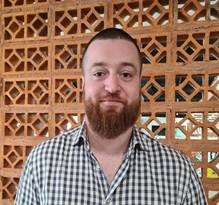
PhD Candidate, Charles Darwin University
Reviving Pancasila’s Potential as a Tool for Achieving Unity Through Diversity
The presentation will discuss Pancasila’s potential to fulfil the raison d’etre of its formulation argued by Soekarno, of providing a unifying ground upon which Indonesians of different ideological and religious beliefs can interact, debate and live together without resorting to violent conflict. Throughout much of Indonesian history, this has not been the role that Pancasila has played, and it has instead been used as an “ideology of exclusion and containment” (Porter 2002: 46), as a tool whereby successive governments have sought to exclude their political opponents and present them as inauthentically Indonesian. While in the early post-Reformasi era, there existed a brief period of greater political openness, the Jokowi presidency witnessed a tightening of ideological freedoms, particularly directed at Islamist groups, many of which were committed to constitutionally based and non-violent change, a phenomenon described by Greg Fealy as ‘repressive pluralism.’ I argue that this approach is both counter-productive, as it may likely lead to greater radicalisation and political violence, and also circumvents Pancasila’s potential to allow for a greater level of political freedom and ideological diversity in a peaceful manner.
Biography
Peter Lilly completed his BA and Honours at the University of Otago, New Zealand in Politics with a minor in History. His dissertation focused on the contemporaneous, theological and historical influences on Khomeini’s formulation of Wilayat-e-faqih (governance by Islamic jurists) and the Iranian Revolution of 1979. Following the completion of his studies, he spent a number of years living in Jakarta and Sulawesi in Indonesia. His research interests include Islamism in postcolonial studies and the relationship between Islam and politics in Indonesia. In September 2024, Peter submitted his PhD thesis for examination.
